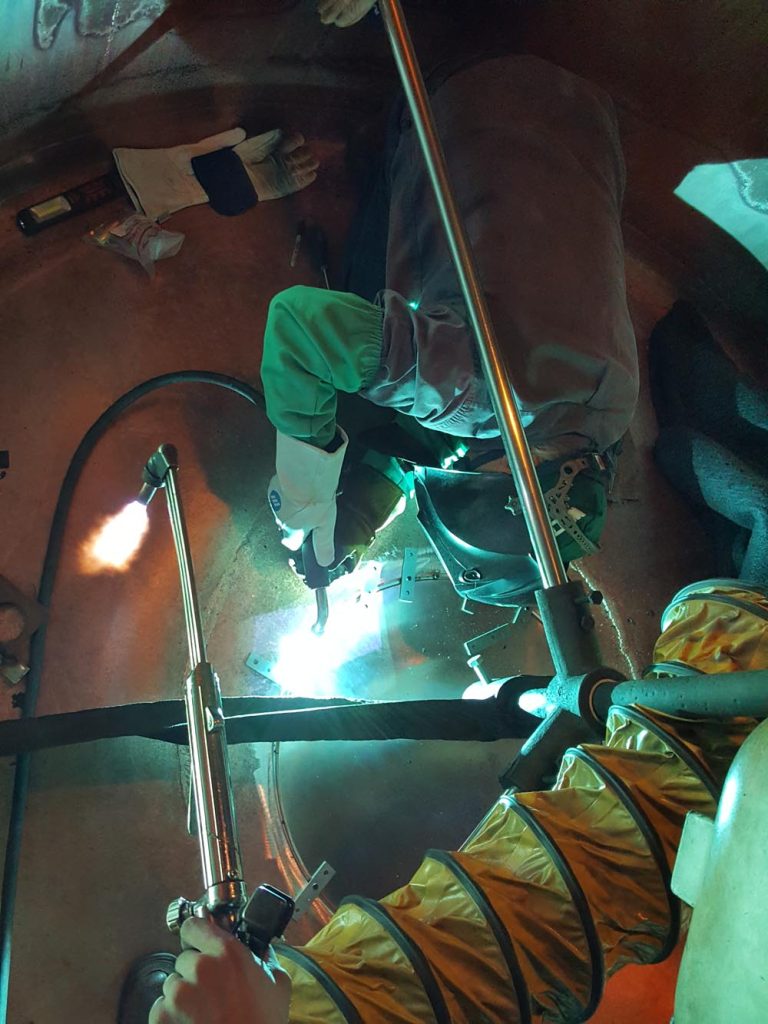Copper Kettles: The History on This Effective Tool for Brewmasters
- Overview of pasteurization in the beverage industry
- Importance of pasteurization in ensuring product safety and extending shelf life
Historical Background of Copper Kettles
- Brief history of copper kettles in brewing and beverage production
- Advantages of copper as a material for kettles
Science behind Copper’s Effectiveness in Pasteurization
- Antibacterial properties of copper
- Mechanisms of microbial inactivation by copper
Copper Kettles in Modern Pasteurization Processes
- Overview of modern pasteurization techniques
- Integration of copper kettles in contemporary brewing and beverage industries
- Limitations and drawbacks of copper kettles
- Health and safety concerns associated with copper usage
Alternatives to Copper Kettles in Pasteurization
- Other materials used for pasteurization equipment
- Comparison of different materials’ effectiveness in achieving pasteurization
- Recap of the role of copper kettles in beer and beverage pasteurization
- Importance of considering various factors in choosing pasteurization equipment
Introduction
Pasteurization plays a vital role in the beverage industry, ensuring product safety and extending shelf life. One traditional method of pasteurization involves the use of copper kettles, which have a long-standing history in brewing and beverage production.
In this article, we will explore the significance of copper kettles in the pasteurization process, examining their historical background, scientific effectiveness, modern applications, and the challenges they present.
Historical Background of Copper Kettles
Copper kettles have been used in brewing and beverage production for centuries. The use of copper stems from its numerous advantages as a material for kettles. Its excellent heat conductivity allows for efficient heating and cooling processes, essential for pasteurization. Furthermore, copper possesses antimicrobial properties, making it an attractive choice for maintaining product integrity.
Science behind Copper’s Effectiveness in Pasteurization
The antimicrobial properties of copper are scientifically proven and well-documented. Copper surfaces have the ability to destroy a wide range of microorganisms, including bacteria and fungi, through various mechanisms.
These mechanisms include disrupting the integrity of cell membranes, generating reactive oxygen species, and interfering with essential cellular processes. Numerous studies support the efficacy of copper in microbial inactivation and highlight its potential for use in pasteurization.
Copper Kettles in Modern Pasteurization Processes
While modern pasteurization techniques have evolved, copper kettles still find their place in the contemporary brewing and beverage industries. They are integrated into sophisticated systems that ensure consistent and controlled heating and cooling.
Copper kettles offer benefits such as rapid and uniform heat distribution, resulting in efficient and effective pasteurization. Additionally, copper’s self-sterilizing properties contribute to maintaining hygienic conditions during the process.
Challenges and Considerations
Although copper kettles have proven their worth, they are not without limitations. One concern is the potential release of copper ions into the beverage during pasteurization, which can affect taste and pose health risks. To address this, regulatory standards and guidelines exist to ensure safe copper usage.
Proper maintenance and periodic monitoring of copper equipment are essential to prevent excessive copper release and maintain product quality.
Alternatives to Copper Kettles in Pasteurization
In recent years, alternative materials have emerged for pasteurization equipment. Stainless steel, for instance, is a popular choice due to its durability, ease of cleaning, and corrosion resistance.
Other materials, such as nickel, titanium, and various food-grade plastics, are also utilized. However, each material has its own advantages and disadvantages concerning heat transfer, antimicrobial properties, and cost-effectiveness.
Conclusion
Copper kettles have played a significant role in beer and beverage pasteurization throughout history. Their effectiveness in microbial inactivation and ability to provide efficient heat distribution make them a valuable tool in the industry.
However, it is crucial to consider the challenges and considerations associated with copper usage, ensuring compliance with safety regulations. As technology advances, alternative materials continue to emerge, providing options for producers to achieve effective pasteurization while addressing specific needs and requirements.
The future of pasteurization lies in striking a balance between traditional practices and innovative solutions. As the beverage industry progresses, it will be interesting to witness how the utilization of various materials, including copper kettles, evolves to ensure the safety and quality of our favorite beverages.
RESOURCES:
Krewinghaus, J., & Messersmith, P. (2018). The Role of Copper in Brewing. Brewing Techniques, 6(2). Retrieved from https://beerandbrewing.com/
EPA | United States Environmental Protection Agency. (2008). Copper Facts. Retrieved from https://www.epa.gov
European Copper Institute: https://copperalliance.eu/
Beer and Brewing Magazine: https://beerandbrewing.com/
Journal of Hospital Infection: https://www.journalofhospitalinfection.com/
Metal Science and Heat Treatment: https://www.springer.com/
BrewingScience: https://www.brewingscience.de/
ABOUT PRO ENGINEERING / MANUFACTURING INC.
Trusted | Knowledge | Quality
We have been involved in pasteurizers since 1977.
PRO Engineering / Manufacturing Inc. has developed a range of small, medium, and large-sized tunnel & batch pasteurizers to fit the needs of BrewMasters and Beverage Makers. When our customers asked for more compact as well as full-size tunnel pasteurizers, PRO developed models to fit our customers’ needs. Then our customers needed a batch pasteurizer. We now provide batch pasteurizers; PRO is a business that continually innovates to meet customer needs.
For more than 40 years, we have been delivering solutions for beverage product shelf stability and consumption safety.
Edward A. Michalski CEO
Ed Michalski started his career in the beverage industry by designing stainless steel, higher flow, spray headers for Pabst Brewing. Along with the header design he also developed a process to produce the new headers.
Ed, along with his brother David, formed PRO Engineering / Manufacturing Inc. Based on what they learned by re-designing and refurbishing other manufacturers’ pasteurizers, Ed and PRO started to offer the pasteurizer marketplace superior new pasteurizers. PRO Engineering / Manufacturing Inc. has been designing and manufacturing great pasteurizers for over four decades.
For more information on tunnel and batch pasteurization contact PRO Engineering / Manufacturing, Inc. at [email protected] or call (414) 362-1500 and ask for Ed Michalski, CEO.
Partner with a PRO!… PRO Engineering / Manufacturing Inc.
Internal Resources:


